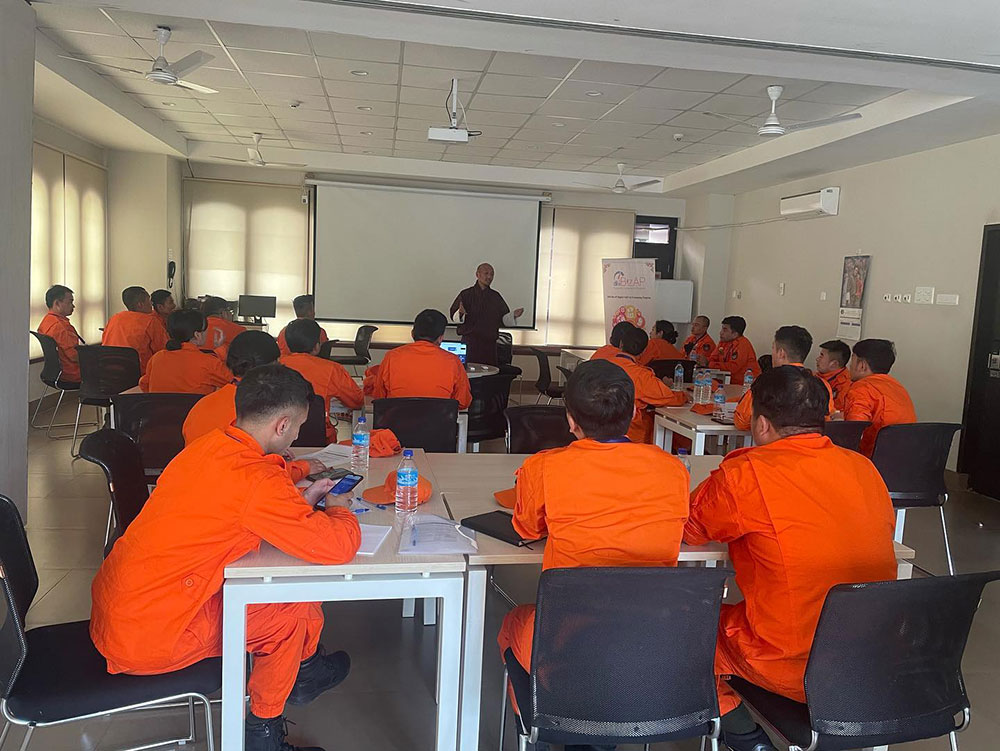Thukten Zangpo
The Druk Holding and Investments Limited’s (DHI) second round of the Business Acceleration Programme (BizAP) on digital skill-up freelancing, exclusively for the de-suups, kicked off on October 18 in Thimphu.
As per the command of His Majesty the King, de-suung skills programme was launched as a token of appreciation for de-suups for serving the nation during the current Covid-19 pandemic.
“It is intended to provide de-suups with opportunities to enhance their capabilities and competencies so that they can find gainful opportunities and participate meaningfully in the process of nation building,” DHI’s press release states.
It added that the programme is an iteration of the successful BizAP training and focuses on equipping the participants with skills in digital fluency in areas such as website development, mobile app development, digital marketing, complemented by skills in freelancing and the gig economy.
The gig economy uses digital platforms to connect freelancers with customers to provide short-term services or asset sharing.
During the event, chief executive officer of DHI, Dasho Karma Y Raydi, said that the programme will be a leap from doing traditional conventional business to digital business towards the digital gig economy.
The de-suung’s steering committee member, Nim Dorji, said the programme will match and respond to emerging needs in the country and the region.
He added that the objective is to make the de-suups skilled in order to compete locally and globally in diverse programmes.
It was found that 1.1 billion (B) out of a 3.5B global workforce are involved in freelancing. The South Asia region is already a hotspot for the burgeoning global freelancing market.
“The internet-connected world provides multiple opportunities through various established platforms to bring together the supply of local skills and the global demand for services,” the press release states.
Of the twenty-five who graduated in April this year, 12 are undergoing an after-care programme in a start-up centre, four got full-time jobs, and four are working part-time for Singapore-based digital marketing and accounting firms.
The three-month long after-care programme provides support to participants to ensure they have every opportunity to succeed that involves apprenticeships, internships, and similar support activities.
The after-care programme participants are also provided internet access, payment access, and other resources.
One of the participants in the after-care programme, Jigme Tenzin, said that the team has designed the website for the United Nation Development Programme and housing.
He plans to apply for a freelance job with the Cloud Accounting and Refruit companies in Singapore, and wants to open a company that will provide website services, e-commerce app development, and do digital marketing.
DHI has partnered with Forward School, a Malaysia-based tech and future-skills school, to provide a bespoke programme customised for the unique needs of Bhutanese.
The previous DHI BizAP programmes focused on accelerating start-ups and advanced stage business proposals. Sixty-one entrepreneurs were trained in three groups, of which 44 were awarded funds amounting to Nu 21.6 million.
Edited by Jigme Wangchuk


